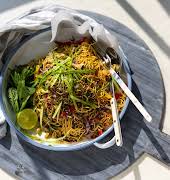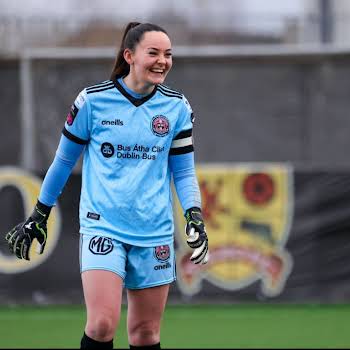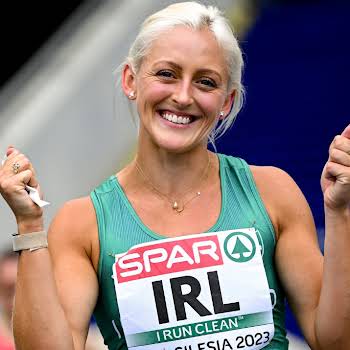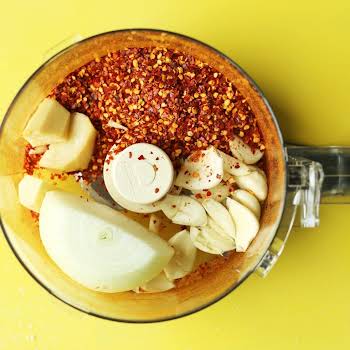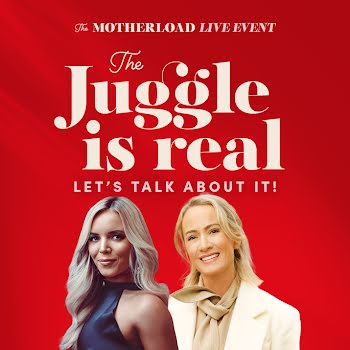Sponsored
5 reasons women need to take nutrition seriously, whatever our performance level says expert Kate McDaid
Sponsored By

By Eva Hall
20th Aug 2020
20th Aug 2020
Sponsored By

“Irrespective of what your goals are, you do not need to suffer to achieve them”. Kate McDaid, founder of high performance nutrition clinic NutriKate, lecturer in Applied Sports Nutrition at TUD and ambassador for Kinetica Sports, outlines why women in particular need to take more stock when it comes to nutrition and protein-intake.
So your Fitbit is clocking well over 10,000 steps and you’ve carved a nice little work out area for yourself next to your WFH desk.
For many of us, the pandemic has been a blessing in disguise, encouraging us to finally throw on those expensive performance runners we’ve been hiding under the stairs and get a handle on our health and fitness.
And now that restrictions are easing across the country and sports grounds and gyms are back open, there’s even more opportunity to keep the momentum going.
But all the gym gear, nifty gadgets and motivation is all useless if you’re not fuelling your body with the correct amount of nutrition and protein it needs. And, ladies, it may come as no surprise that we’re not the best at putting ourselves first when it comes to our physical health.
Kate McDaid, a high performance nutritionist who works with elite athletes as well as clients seeking a better quality of life, outlines five reasons women in particular should take better stock of their nutrition when participating in sport.
1. Athletes are people too
You may not be training for a marathon or triathlon, but every one doing some form of workout must prepare their bodies. “It’s important to remember that before an athlete is an athlete, they’re a person,” says Kate. “Irrespective of what their performance goals are, it’s important that I ensure they’re meeting their fundamental requirements first from a nutritional perspective. From there you can build upon more sport specific requirements that are relative to the athlete you’re working with.”
And every body is different and requires a different approach to nutrition. “It’s really important that you look at everyone on an individual basis. I work with many sports teams, all of which are working towards the same thing, however, each individual within the team will have different needs depending on their position on the field or their responsibilities away from training,” says Kate.

“That’s not to mention the fact that they’re all different shapes and sizes, factors that also impact their needs.
“You are an individual, recognise your needs and note areas of your diet and lifestyle that are and aren’t working for you. That is the starting point we all need to ensure we achieve our true potential. It’s okay to have different needs and preferences to others around you.”
2. As usual, your period has a say
As women, we’re used to getting our periods every 4-6 weeks and it impacting in some way, whether that’s pain or fatigue. But periods can also impact your nutrition and should be taken into account when exercising and training.
“There’s huge variability in your menstrual cycle each month,” says Kate. “It will have an impact on training, injury risk and performance. Therefore, being aware of my client’s cycle – athlete or not – and how it affects her specifically month to month can help us make adjustments to limit negative outcomes.
“For example, as we approach the end of her cycle, the luteal phase, and are close to menstruating, increasing calories slightly can aid performance and indeed body composition goals as metabolism increases slightly here. Our menstrual cycle also impacts our mood, readiness to train, water retention, cravings to name but a few areas that if we are aware of, we can account for and make changes accordingly to alleviate symptoms.
“A lot of women don’t fully understand the significance of their menstrual cycle with regards to their overall health which is something that needs to change. It regulates hormones involved in bone health and cardiovascular health, for example. PMS, menopause and amenorrhea bring about both health and performance challenges.
“The energy cost of the reproductive system in females can be 30,000kcals per year. This is before any exercise is undertaken, so it’s really important both women and society understand and respect the value of the menstrual cycle from both a health and performance perspective.”

Luckily, there are certain foods or supplements that we can incorporate into our diets to help prevent or reduce PMS symptoms.
“As always, the overall quality of your diet is important and can also be a factor in the symptoms you experience. Try swapping processed foods high in sugar, salt and fat for nutrient-dense whole foods to help alleviate symptoms,” says Kate.
“There are also some specific nutrients that have been shown to aid some symptoms in particular. If you suffer from cramps for example, omega 3s and magnesium have been shown to help, so look to include oily fish and magnesium-containing foods like legumes, chickpeas, lentils, nuts and seeds in your diet.
“If you aren’t a fan of oily fish and it’s not part of your regular diet, omega 3 supplementation might be worth taking a look at both from a PMS perspective but also a health one too. Reducing caffeine intake is also recommended – opting for herbal alternatives such as peppermint tea or milk or water instead.”
3. Age is a factor
“Bone health is a huge area of importance for women of all ages, however we can have the most influence on it when we are in our teens and in our early 20s,” advises Kate. “Vitamin D, calcium (e.g. dairy, green leafy vegetables, nuts, soya beans) and weight-bearing and resistance exercises are really important parts of this puzzle to help us improve the strength of our bones so that as we get older we can maintain optimal bone density.”
Kate says this is one of the challenges women can face in menopause for example and ageing itself, so we must ensure our bones don’t become too thin and weak. This will mean that they are more likely to break if you suffer a fall which can lead to further complications.
“Women of menstruating age need to be mindful of iron intake. We lose iron through the blood loss we experience each month so if you have heavy bleeding with your period, you need to be even more vigilant of this. Including iron-rich foods like meat, chicken, spinach, lentils and pumpkin seeds for example is really important.

“Protein is an important part of our diet and is often rather low. It supports our muscle function, repair and is the backbone of our DNA. Sarcopenia (muscle loss) is something that will affect a lot of us as we get older. For women, we see start to see muscle loss as early as our late 20s. Our muscle mass is healthy, active tissue that we absolutely want to hold on to. Making sure protein is included in our diet and in adequate amounts on a consistent basis is essential for retaining muscle mass.
“For example, aiming to have ~25g protein about 3-4 times per day is a great target to help you to meet your needs. As we age, we respond to protein intake differently and requirements may increase to ~40g per meal.”
In general, Kate says it’s important we strive to adopt a diet that is rich in nutrient-dense foods and has plenty of variety.
4. Societal pressures
Research shows that women are more likely to experience a nutrient deficiency compared to men, according to the Population Reference Bureau. One reason for this, says Kate, is that women tend to put themselves under tremendous pressure to look a certain way.
“Societal pressures play a huge role in this, leading women to try very restrictive diet plans at one point or another of their lifespan,” she says.
“Irrespective of what your goals are, you do not need to suffer to achieve them.
“Recognising that your body needs energy – calories that we get from food – to survive before you even start to exercise is important to note. It sounds basic but often that fact can be lost. The more activity you do, the more energy your body requires to function.”
Kate recommends taking note of your energy levels and overall wellbeing is a good way to track whether your diet is serving you as it should be. As females, taking note of our menstrual cycle and any changes we may experience is also useful as it’s often one of the first bodily processes to be affected by inadequate nutritional practices.

Kinetica Sports recommends taking its Lean Active Protein within 30 minutes of your training or workout, but try it out at other times too for extra benefit. You can simply mix it with yoghurt or porridge oats and add some fruit for extra flavour.
“Aiming to include plenty of variety in your diet from nutrient-dense, whole foods will also reduce your risk of nutrient deficiencies. Getting friendly with fruit and vegetables for example is a nice way to improve this. If you are adopting a more restrictive diet such as a vegetarian or vegan diet, be sure to get some guidance so that you are aware of any nutrients that may be missing from your diet.”
5. Supplements are not just for bodybuilders
Protein powders can be used by anyone who is struggling to meet their protein requirements or who simply wants a convenient, high-protein option on the go, says Kate.
“Supplement benefits are largely determined by the individual’s diet and lifestyle, however as fish consumption is typically low (less than 3 portions of oily fish per week) omega 3 supplementation can be a great addition to someone’s diet.
“Omega 3s are essential fatty acids – essential meaning that we have to get it from our diet, our body can’t come up with the goods itself on this front – that can have very beneficial effects on our health. These include: improved brain function, anti-inflammatory properties and extra support for our immune system.”
Kinetica’s omega 3 super concentrated fish oil supplement is just €16.99 for 90 capsules.
Kate advises a vitamin D supplement may also be beneficial as we head into the winter months. “This is the vitamin we get from the sun, as you very much know, that’s not something we see too often in Ireland and as a result around 1 in 5 of us have low vitamin D levels. This vitamin is one that we need for optimal bone health and muscle function. It also has a positive impact on our mood.”

Kate herself opts for a whey protein to help meet her protein needs. “It tastes nice, it’s very versatile and it can be a nice addition to so many things, such as a smoothie for example,” she says.
Kinetica whey protein is a ‘complete’ protein, meaning you are getting all nine essential amino acids at once, including branched-chain amino acids: leucine, isoleucine and valine.
These nine essential amino acids are vital as they support tissue repair, protein synthesis and nutrient absorption.
“I don’t recommend supplements to all of my clients, it’s individual-dependent, but when I do it’s imperative that the supplements I choose are ones of the highest standard,” says Kate. “I can trust that I will get just that from Kinetica Sports.”
Kate McDaid is a Kinetica Sports ambassador. For more information on Kinetica’s product range, see here.
Read more: Why women need more protein in their diet




